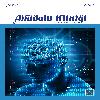Epilepsi Hastalarında Yaşam Kalitesine Psikosomatik Açıdan Yaklaşım
Epilepsi, psikolojik zorlanma/psikosomatik, geçerlilik, psikosomatik araştırmalar için tanı kriterleri sınıflandırması sistemi, ruhsal bozuklukların için tanı ve istatistik el kitabı sınıflandırılması sistemi, yaşam kalitesi
A Psychosomatic Approach to Quality of Life in Patients with Epilepsy
Epilepsy, psychological distress/psychosomatic, validation, diagnostic criteria for psychosomatic research classification, diagnostic and statistical manual of mental disorders classification, quality of life,
___
- Liu G, Guo H, Guo C, Zhao S, Gong D, Zhao Y. Involvement of IRE1α signaling in the hippocampus in patients with mesial temporal lobe epilepsy. Brain Res Bull. 2011;84(1):94-102.
- Strzelczyk A, Reese JP, Dodel R, Hamer HM. Cost of epilepsy: a systematic review. Pharmacoeconomics. 2008;26(6):463-76. doi: 10.2165/00019053-200826060-00002.
- Kwan P, Brodie MJ. Neuropsychological effects of epilepsy and antiepileptic drugs. Lancet. 2001;357: 216-22
- Stevens JR. Psychiatric aspects of epilepsy. J Clin Psychiatry. 1988;49(Suppl 4):49-57.
- Perez DL, Murray ED, Price BH. Depression and psychosis in neurologicial practise. In: Daroff RB, Mazziotta JC, Jankovic J, Pomray SL, editors. Bradley's Neurology in Clinical Practice. Elsevier; 2016:108-109.
- Gaitatzis A, Trimble MR, Sander JW. The psychiatric comorbidity of epilepsy. Acta Neurol Scand. 2004;110(4):207-20.
- Torta R, Keller R. Behavioral, psychotic, and anxiety disorders in epilepsy: etiology, clinical features, and therapeutic implications. Epilepsia. 1999;40(Suppl 10):2-20.
- Seo JG, Cho YW, Lee SJ, Lee JJ, Kim JE, Moon HJ, et al. Validation of the generalized anxiety disorder-7 in people with epilepsy: a MEPSY study. Epilepsy Behav. 2014;35:59-63.
- Park SP, Song HS, Hwang YH, Lee HW, Suh CK, Kwon SH. Differential effects of seizure control and affective symptoms on quality of life in people with epilepsy. Epilepsy Behav. 2010;18(4):455-9.
- Cramer JA, Blum D, Fanning K, Reed M. The impact of comorbid depression on health resource utilization in a community sample of people with epilepsy. Epilepsy Behav. 2004;5(3):337-42.
- First MB, Gibbon M. The Structured Clinical Interview for DSM-IV Axis I Disorders (SCID-I) and the Structured Clinical Interview for DSM-IV Axis II Disorders (SCID-II). In M. J. Hilsenroth & D. L. Segal (Eds.), Comprehensive handbook of psychological assessment, Vol. 2. Personality assessment (p. 134–143). John Wiley & Sons Inc;2004
- Vanheule S, Desmet M, Meganck R, Inslegers R, Willemsen J, De Schryver M, et al. Reliability in psychiatric diagnosis with the DSM: old wine in new barrels. Psychother Psychosom. 2014;83(5):313-4.
- Porcelli P, Bellomo A, Quartesan R, Altamura M, Iuso S, Ciannameo I, et al. Psychosocial functioning in consultation-liaison psychiatry patients: influence of psychosomatic syndromes, psychopathology and somatization. Psychother Psychosom. 2009;78:352–358.
- Evers AWM, Gieler U, Hasenbring MI, van Middendorp H. Incorporating biopsychosocial characteristics into personalized healthcare: a clinical approach. Psychother Psychosom. 2014;83:148–57.
- Guidi J, Rafanelli C, Roncuzzi R, Sirri L, Fava GA. Assessing psychological factors affecting medical conditions: comparison between different proposals. Gen Hosp Psychiatry. 2013;35(2):141-6.
- Sonino N, Peruzzi P. A psychoneuroendocrinology service. Psychother Psychosom. 2009;78(6):346-51.
- Corapcioglu A, Aydemir O, Yildiz M, Esen A, Koroğlu E. Structured clinical interview for DSM-IV Axis I Disorders (SCID-I), clinical version. Ankara: Hekimler Yayın Birliği; 1999. [Turkish]
- Sayılgan N, Guleç H, Domaç FM. Psychosomatic diagnosis in patients with migraine and tension type headache Cukurova Med J. 2018;43(Suppl 1): 262-267. [Turkish]
- Ware JE, Sherbourne CD. The MOS 36-item short-form health status survey (SF-36). 1. Conceptual framework and item selection. Med Care. 1992;30(6):473-83.
- Koçyiğit H, Aydemir Ö, Ölmez N, Nemiş A. SF-36’nın Türkçe için güvenilirliği ve geçerliliği. İlaç ve Tedavi Derg. 1999;12:102-6.
- Marcangelo MJ, Ovsiew F. Psychiatric aspects of epilepsy. Psychiatr Clin North Am. 2007;30(4):781-802.
- Morrell MJ. RNS System in Epilepsy Study Group. Responsive cortical stimulation for the treatment of medically intractable partial epilepsy. Neurology. 2011;77(13):1295-304.
- Johnson EK, Jones JE, Seidenberg M, Hermann BP. The relative impact of anxiety, depression, and clinical seizure features on health-related quality of life in epilepsy. Epilepsia. 2004;45(5):544-50.
- Mangelli L, Bravi A, Fava GA, Ottolini F, Porcelli P, Rafanelli C, et al. Assessing somatization with various diagnostic criteria. Psychosomatics. 2009;50(1):38-41.
- Nanni MG, Caruso R, Travado L, Ventura C, Palma A, Berardi AM. Relationship of demoralization with anxiety, depression, and quality of life: A Southern European study of Italian and Portuguese cancer patients. Psychooncology. 2018;27(11):2616-2622.
- Jacoby A, Baker GA, Steen N, Buck D. The SF-36 as a health status measure for epilepsy: a psychometric assessment. Qual Life Res. 1999;8(4):351-64.
- Barry JJ, Ettinger AB, Friel P, Gilliam FG, Harden CL, Hermann B, et al. Consensus statement: the evaluation and treatment of people with epilepsy and affective disorders. Epilepsy Behav. 2008;13(supp 1):1–29.
- Cramer JA, Blum D, Reed M, Fanning K. The influence of comorbid depression on seizure severity. Epilepsia. 2003;44:1578–1584.
- Boylan LS, Flint LA, Labovitz DL, Jackson SC, Starner K, Devinsky O. Depression but not seizure frequency predicts quality of life in treatment-resistant epilepsy. Neurology. 2004;62:258–261.
- Kanner AM. Psychiatric issues in epilepsy: the complex relation of mood, anxiety disorders, and epilepsy. Epilepsy Behav. 2009;15:83–87.
- Tesio V, Ghiggia A, Di Tella M, Castelli L. Utility of the Diagnostic Criteria for Psychosomatic Research in assessing psychological disorders in fibromyalgia patients. J Affect Disord. 2019;256:219‐220. doi:10.1016/j.jad.2019.06.013.
- Sirri L, Fabbri S, Fava GA, Sonino N. New strategies in the assessment of psychological factors affecting medical conditions. J Pers Assess. 2007;89(3):216-28.
- ISSN: 2149-5254
- Yayın Aralığı: Yılda 3 Sayı
- Başlangıç: 1933
- Yayıncı: Hayat Sağlık ve Sosyal Hizmetler Vakfı
Üreteral Stentlerin Postoperatif Ağrı Üzerine Etkisi
Mustafa Bilal HAMARAT, Fatih ÜSTÜN, Serkan ÖZCAN, Murat BAGCIOGLU, Mehmet Kutlu DEMİRKOL, Bekir TURGUT
Çağrı Emin ŞAHİN, Mehmet Akif SEZEROL, Muhammed ATAK
Tiroid Nodüllerinin Değerlendirilmesinde Bethesda Sistemi ve İnce İğne Aspirasyon Biopsisinin Yeri
Gizem AKKAŞ AKGÜN, Figen ASLAN
Kenan YİĞİT, Murat KAVAS, Ersan ÇETİNKAYA, Mustafa DOĞAN, Mustafa KALAYCI
Nermin UYURDAĞ, Gaye ESKİCİOĞLU, Serkan AKSU, Ahmet Zihni SOYATA
İzotretinoin Tedavisi Sırasında Galaktore Gelişimi: Yeni Bir Yan Etki mi?
Obezite Polikliniğine Başvuran Hastaların Metabolik Fenotiplerine Göre Kardiyovasküler Riskleri
Burcu GÜVEN KACIROĞLU, Hacer Hicran MUTLU
Epilepsi Hastalarında Yaşam Kalitesine Psikosomatik Açıdan Yaklaşım
Ayse Terzi ATAR, Şakir GICA, Yasemin KURTULMUŞ, Hüseyin GÜLEÇ
